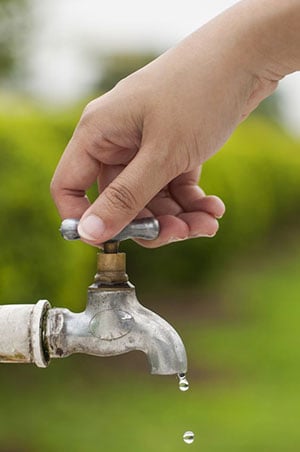 When consumer goods are your brand’s bread and butter, there are plenty of factors outside your control that influence how you develop and implement new food technology. If environmental factors like water limitations are not currently impacting your food and beverage business, there’s a good chance they will in the very near future.
When consumer goods are your brand’s bread and butter, there are plenty of factors outside your control that influence how you develop and implement new food technology. If environmental factors like water limitations are not currently impacting your food and beverage business, there’s a good chance they will in the very near future.
Reduced water supply, in particular, poses a fundamental risk to many consumer goods companies, hobbling their ability to innovate new food technologies, methods and products.
And, according to a 2014 CDP survey results reported by Food-Navigator USA, nearly half of all food and consumer goods firms (45 percent) reported that they were already struggling with water supply challenges.
It’s not all bad news though. In fact, water restrictions and tighter environmental regulations could end up pushing food and beverage manufacturers towards new innovations that reduce their environmental impact while improving the quality or variety of food products available for consumers.
Water Restrictions Pose Fundamental Threat to Food and Beverage Industry
Food and beverage manufacturing requires large amounts of water. This process generates an equally high amount of wastewater, much of it filled with fats, oils and grease (FOG) and suspended solids.
While this biodegradable wastewater is not difficult to treat, since wastewater differs greatly depending on whether it’s produced via beverage or food manufacturing, a universal treatment solution does not currently exist. The lack of a universal solution is a natural space for innovation. In the past, food and beverage manufacturers have been reluctant to invest in new treatment processes because of the lengthy investment payback period, says Charlie Hertle, a consultant with leading professional services company GHD, who shared his concerns in an interview with WaterWorld.
With the industry already feeling the impact of scarce water resources, however, food and beverage manufacturing companies may have little choice now but to innovate new food technology in order to reduce their water consumption.
The CDP report surveyed 174 industry leaders like Nestle, Danone, Coca-Cola Company, Diageo and Unilever. 81 percent of the companies surveyed said that they were concerned about water availability and quality, with one in five fearing that water restrictions could inhibit business growth and innovation.
According to Food-Navigator USA, part of the problem may be that many of these companies do not require suppliers to report on their water usage. This means that larger companies fail to realize how seriously water shortages impact their suppliers until these shortages become a serious problem – leaving less time to develop solutions and avoid manufacturing disruptions.
New Focus on Sustainability Driving Innovation
New regulations, coupled with the increasingly limited availability of clean water, may be pushing the industry in a new direction. The European Union, for example, has proposed legislation that would require 6,000 major companies to disclose their water use along with other environmental criteria. While similar legislation does not yet exist in the United States, companies are already taking proactive steps to address water shortages.
New treatment processes are being developed and refined to more effectively recycle fatty wastewaters:
- anaerobic membrane bioreactors
- small-footprint granular aerobic system
These innovations are already finding practical marketplace applications.
The EcoVolt water treatment waste system at Bear Republic Brewing system, for example, generates heat and electricity through the wastewater treatment process. According to a WaterWorld report, the EcoVolt system is estimated to generate enough clean heat and electricity to eliminate more than 50 percent of Bear Republic Brewing’s base-load energy use.
These energy savings translate to hundreds of thousands of dollars in savings each year and deliver an annual return-on-investment of 25 percent – not to mention making a positive environmental impact.
While water challenges could restrict business growth, innovations like Bear Republic Brewing’s EcoVolt water treatment system could be a game-changer. These innovations show other companies that it is possible to creatively address water shortages and find solutions that are good for business, the environment and the consumer.







